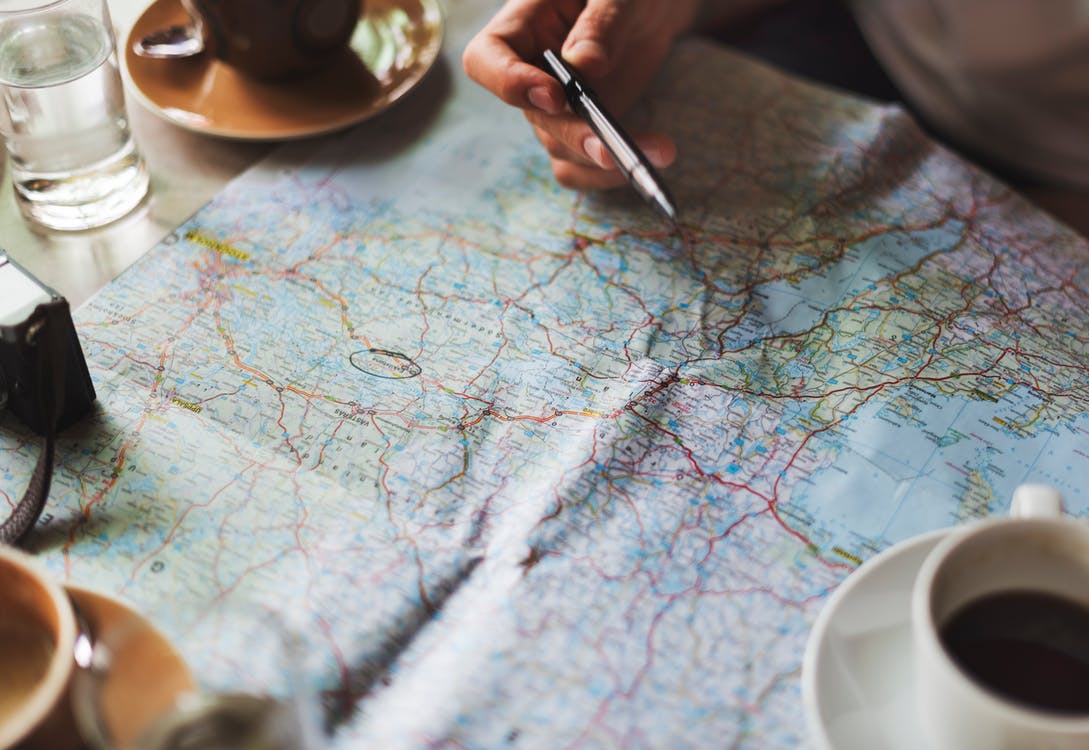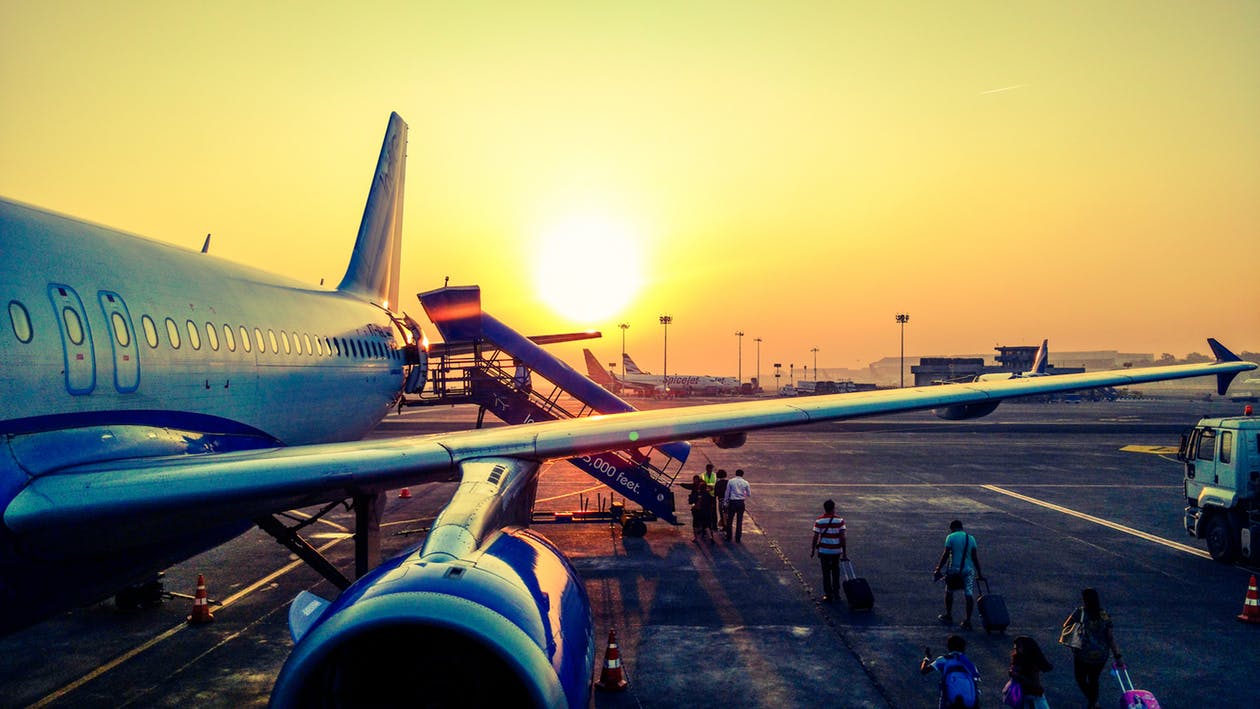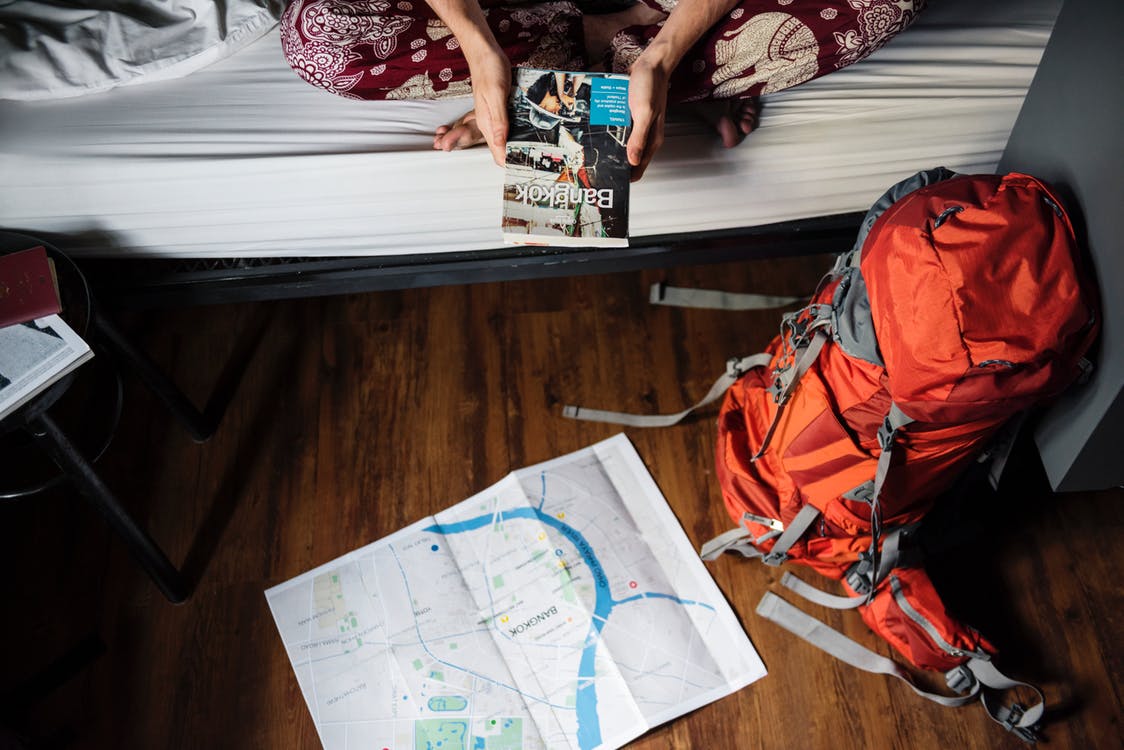What are the best ways to help the environment when you travel? In this guide you will discover how to enjoy travelling while being eco-friendly and saving money at the same time.
A carbon footprint is defined as the total amount of greenhouse gases produced to, directly and indirectly, support human activities. This is usually expressed in equivalent tons of carbon dioxide (CO2).
The key phrase here is ‘directly and indirectly support human activities’. What it means is that people may or may not know that what they’re doing is harming the environment. Everyday activities like driving your car, cooking your food, keeping your home warm or cold, and everything else in between all add up to your carbon footprint.
It’s true that you should be looking for ways to help the environment from your home. However, what if you’re not at home? Specifically, what if you’re out travelling?
This guide will talk about things that you can do to still enjoy travelling while being eco-friendly and saving money at the same time. But first things first, ask yourself if you really have to travel and be away from home.
But if you made up your mind that travelling is how you want to spend your holidays, then go wild. Before you do, however, take some time to go through the following tips to sustainable travelling.
Pre-travel preparations

Sometimes, or probably most of the time, you tend to spend a lot of money before the actual date of travel. That’s because you impulsively buy things which you think you need. New clothes, shoes, luggage, fancy hotels and restaurants at your destination — all of these add up to your expenses.
You don’t have to buy brand new clothes in the first place. You’re going to a foreign place, and the people there wouldn’t care how you’re dressed (as long as it is appropriate for the native culture). Shopping for secondhand clothes at charity shops, for instance, will save you a lot of money.
Another thing that most people forget is what they’re leaving behind when they travel. That’s right! Don’t forget about your home, especially what’s inside your fridge. Consume all the food if possible and avoid overstocking your refrigerator with supplies that will have been spoiled when you come back.
If this is not possible, freezable recipes are the way to go. This will ensure that you have delicious food on the table for when you get back. At the same time, bring packed food with you, so you don’t have to spend extra money when you’re on the plane. Do these things, and you’ll find yourself saving money by avoiding waste.
Avoid (or reduce) air flights

The average American alone has a carbon footprint that exceeds 20 tonnes (Source: Human Footprint, National Geographic Channel). That’s how much of an impact one person has to the environment, so imagine the combined impact worldwide. One big contributor to a person’s carbon footprint is by flying on a plane which, unfortunately, is something that cannot always be avoided.
Flying has become a part of everyday lives but little did you know that it’s a major environmental polluter. Since it can’t be avoided, the only choice that you have is to reduce your impact. This can be done by choosing less short-haul flying and booking a flight with an airline that has a higher capacity and more efficient aircrafts.
If you must get the service of a travel company, choose one that meets the ‘green credentials’. Responsible Travel, Intrepid and Exodus are perfect examples of such companies. If unsure, it’s best to ask whether or not the company that you plan to book with promotes sustainable development, environmental awareness and support for local communities.
In recent years a new trend of slow travel has been growing, and the number of people who say no to the plane to experience the real thrill of journey (by train, public transport, on foot or by bicycle) is becoming a trend. So why not try the slow travel on your next vacation?
When you arrive at your destination

Try camping instead of staying in a hotel. This will save you a lot of money and will cut your carbon footprint as well since you don’t have to use as much electricity for heating or cooling. Just make sure you stay in designated camping sites as it can be illegal to pitch in certain places.
It’s a different story though if your hotel is an eco-friendly one. How would you know? Look for an accommodation with the Ecobnb web site, the platform that connects eco-friendly hotels, B & B, holiday homes and ecological farmhouses (there is also the free Mobile App available). All the accommodation facilities listed on Ecobnb have at least 5 of 10 important environmental requirements: for example energy 100% from renewable sources, organic and local food, reduction of water consumption, natural detergents and promotion of soft mobility… and after the stay you can leave your own review on the eco-friendly attention you noticed in the hotel. Alternatively, you can find a hotel asking for waste treatment systems, recycling programmes, energy efficiency initiatives and even the use of solar energy or hydroelectric power.
Keeping yourself and your kids safe when travelling is high priority, so if you’re heading to the beach, don’t forget your sunscreen. However, choose a coral or ocean-safe sunscreen. Otherwise, these sunscreens will destroy coral reefs when washed away from your body. The good news is that it’s easy to find the right sunscreen — check the label.
Important tips to Travel Eco-Friendly

Here’s a few more tips to help you save money on your eco friendly travels:
- Pack light as much as possible. The heavier the plane is, the more fuel it will consume which means more carbon dioxide is emitted.
- Treat your hotel room as you would your own. It can be tempting to take advantage of all the services the hotel has to offer BUT DON’T. When you’re at home, you try to save as many resources as possible so do the same. For example:
– Avoid getting clean towels when not necessary.
– Don’t take long showers.
– Turn off the lights, television, and air conditioning when they’re not in use.
– If possible, hang dry your wet clothes instead of using the dryer.
– Welcome the sunlight and fresh air in by opening the windows or the veranda door. - Treat yourself to local foods. Here’s why:
– Local foods are fresher and taste better since they didn’t have to be trucked or flown in. Chances are, you’ll be eating fruits and vegetables that were freshly picked.
– Food that didn’t have to travel a long way is friendly to the environment. Less travel time means less fuel consumed. When less fuel is consumed, your carbon footprint is also reduced.
– You support the local community. You help local farmers and maintain green vegetation in the area.
– Contrary to what most people think, local food is a lot safer. That’s the fewer steps involved between your food source and your table, the lesser chance there is of contamination. - Same as food, buy local booze.
- Obviously, going to other places and tourist spots is part of your itinerary. So, avoid renting cars to get to these places. Instead, ride a bicycle if possible or get on a train. This will save you money in the process, and it’s also not harmful to the environment. Another bonus is you’ll get a chance to interact with the locals which can be an enjoyable experience.
- Water bottles are a no-no. These things are made of plastic which will never disappear off the face of the earth. Similarly, plastic drinking straws should be avoided as they are also an environmental threat and they pollute seas and oceans. Use refillable bottles and use straws that are made of bamboo, stainless steel, or glass.
- When going to local supermarkets, ONLY USE reusable shopping bags instead of the ones made of plastic.
- Be responsible. Don’t just throw away your waste anywhere. Reduce waste on holidays, and look for recycling centres in the area.
Time to travel!
If you think that your getaway will become boring and less fun because of these reminders, you’re completely mistaken. These shouldn’t and will never get in your way. After all, it’s everyone’s responsibility to take care of the planet, and yours doesn’t end when you’re not at home.
Cover image: photo by Porapak Apichodilok via pexels.com
